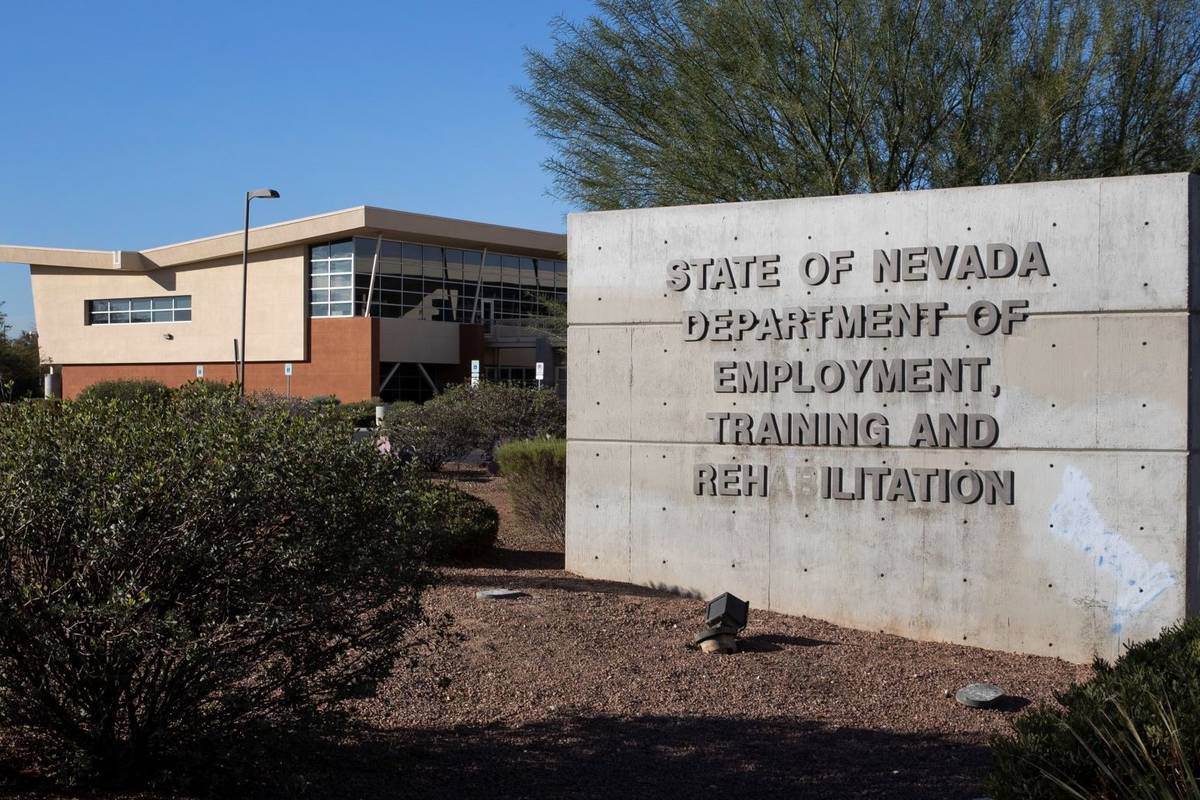DETR updates status of unemployment programs
The Nevada Department of Employment, Training and Rehabilitation on Friday provided updates on the federal unemployment programs extended by HR 133, the Continued Assistance Act of 2021. CAA extends all federal programs from Dec. 27, 2020 to the week ending March 13.
“We know how important these extended benefits are to Nevadans, and ensuring they receive them is our number-one priority,” DETR Director Elisa Cafferata said. “We are working as fast as we can to implement all federal benefit programs but need time to realize this in both systems and ask for the public’s patience as we move forward in providing critical assistance to Nevadans.”
The CARES Act created the PUA program in 2020. Self-employed people and gig workers could collect up to a total of 39 weeks of benefits. And the original PUA program expired on Dec. 26, 2020.
For PUA, CAA added 11 weeks to the number of weeks a claimant can receive benefits for a total maximum of 50 weeks in PUA.
Unlike the regular UI program, the PUA program has an expiration date. Under CAA, eligible claimants could collect benefits up to April 10 or for a maximum of 50 weeks, whichever comes first.
States with high unemployment rates can offer a one-time extension of seven weeks, which some PUA claimants started receiving in 2020. The Department of Labor required Nevada to “turn off” this extension for PUA when the program expired Dec. 26, 2020. Unfortunately, this complication delayed full implementation of the 11-week extension for PUA.
DETR is working with our vendor to ensure that eligible claimants can get their weekly benefits for the full 11 weeks of CAA PUA benefits, retroactive to Dec. 27, 2020. DETR anticipates claimants will see these additional weeks in their portals before the end of the month.
The CAA added 11 weeks of benefits for eligible UI recipients.
In regular UI, the PEUC 11-week extension coding and testing is in progress. DETR has learned that additional programming is needed to track when claimants are exhausting the first 13 weeks of PEUC from the CARES Act, before they switched over to the 11 weeks of PEUC from the Continued Assistance Act. This computer programming is being tested now. As soon as it passes testing, it can be deployed and payments will start going out. Claimants will get all of the weeks they are entitled to by continuing to file their weekly claims.
The legislation reinstated the Federal Pandemic Unemployment Compensation program, providing an additional $300 weekly benefit to claims paid for the weeks from Dec. 27, 2020 until week ending March 13.
This benefit programming has been implemented in most programs, and payments have been issued along with unemployment benefits to eligible claimants in both UI and PUA with no further action required from claimants.
Claimants waiting for updated programming to receive the Continue Assistance Act extended benefits will receive any back weeks of FPUC they are eligible for as their benefit payments are caught up.
States with high unemployment rates can offer a one-time extension of seven weeks, which some PUA claimants started receiving in 2020. Claimants who started receiving Extended Benefits in 2020 can receive the balance of their seven weeks in 2021, as long as the unemployment rate remains.
DETR originally announced that because of Nevada’s high average insured unemployment rate, the state would be able to offer an additional seven weeks of Extended Benefits for claimants who had exhausted their claims. In regular UI, DETR was able to immediately offer this benefit to claimants who qualified.
Unfortunately, because the PUA program expired Dec. 26, 2020, the Department of Labor is requiring Nevada to wait 13 weeks before adding seven weeks of Extended Benefits for PUA claimants who have exhausted their claims. This could create a two-week gap for many PUA recipients.
To avoid that gap, DETR is finalizing emergency regulations that will allow the agency to apply the additional seven weeks and issue payments without having to wait the federally mandated 13 weeks. The emergency regulations must be signed by agency administration and the governor prior to being presented to the Legislature, which has 15 days to review them.
DETR is on schedule to have these emergency regulations in place a week before the 11 weeks of CAA PUA benefits exhaust. PUA claimants will be able to receive the seven weeks of EB without an interruption in benefits.
Although we requested additional funds from FEMA, we did not get sufficient LWA funding to pay week six. Any remaining funds will be used to pay the first five weeks for people who are waiting for adjudication or appeal and end up qualifying for the benefit in those weeks. No action is required from claimants to receive this benefit.
It is important to note that these federal programs generally expire the week ending March 13, 2021 unless Congress extends them. And the extensions will require additional computer programming. If they wait too late to extend the programs, another gap in providing the benefits could result.
Claimants might not realize that their benefits, even with these extensions, might have temporarily expired because of federal rules. A PUA claimant who started filing Feb. 2, 2020, for example, would have received the 2020 PUA max of 39 weeks on Oct. 31, 2020, exhausting the PUA claim.
They would have then been eligible for extended benefits, and those seven weeks would have ended Dec. 19, 2020 – exhausting their PUA + EB claim. Under CAA, the 11 additional weeks will exhaust the week ending March 13.
DETR encourages claimants to visit http://ui.nv.gov/css.html and detr.nv.gov/coronavirus to view important announcements and access essential resources. Additional updates will be provided as information becomes available.
















